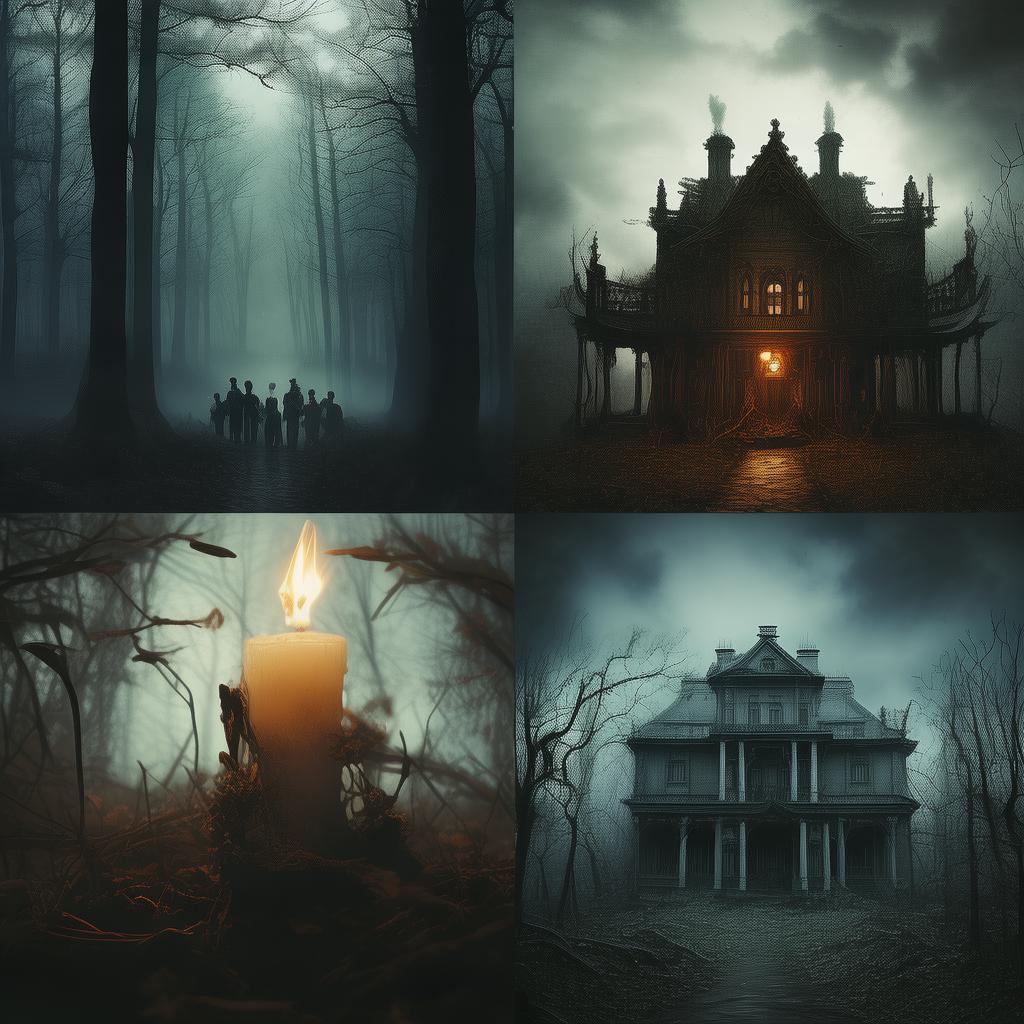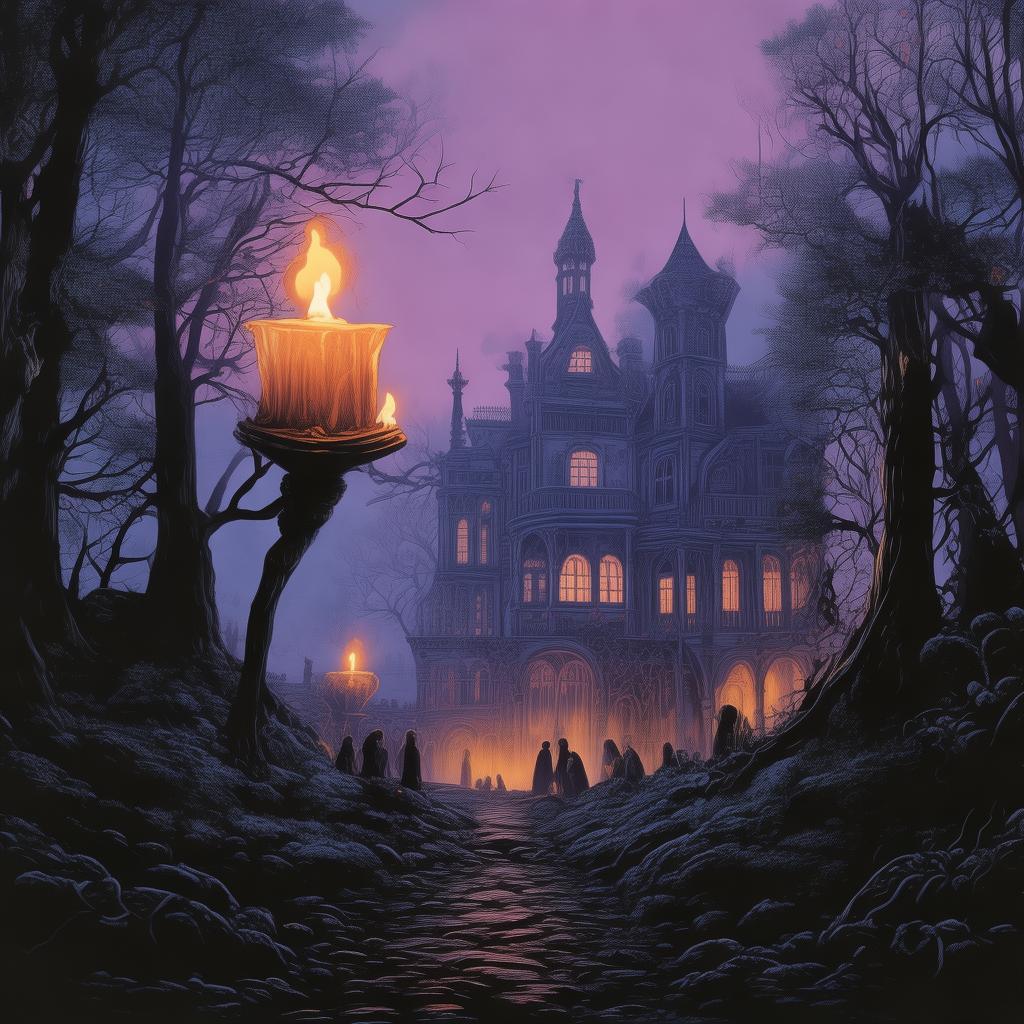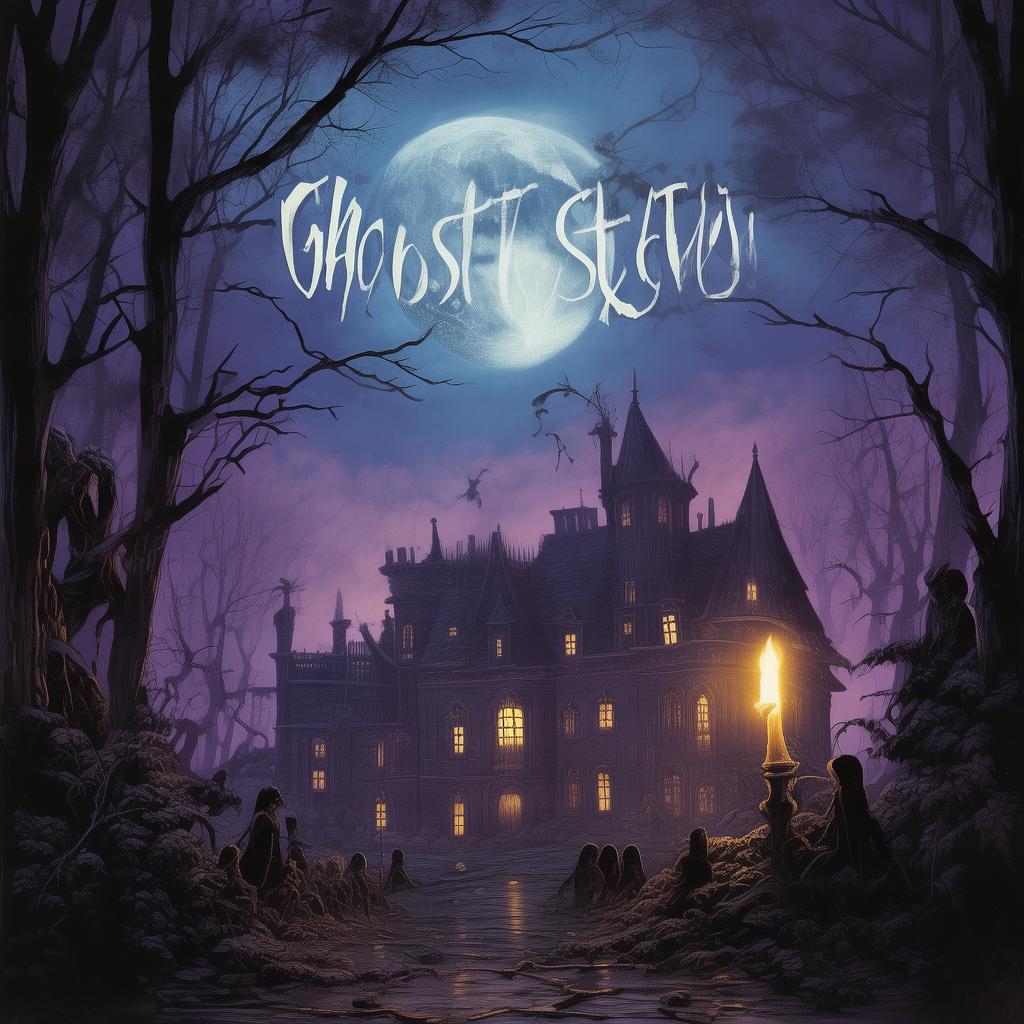The Jingqu Ghost's Lament: A Haunting Lullaby Unveiled
In the heart of the ancient Jingqu village, nestled between the mountains and the river, there stood an old, abandoned inn known to the locals as the Jingqu Inn. The inn was a relic of a bygone era, its wooden beams creaking with the weight of time and its walls whispering secrets long forgotten. It was said that the inn was haunted by the spirit of a woman, a tale that had been passed down through generations, a chilling bedtime story for the children of Jingqu.
The story of the Jingqu Ghost began in the year 1935, when a young woman named Liang Mei was found dead in her room, the victim of a mysterious illness. The townsfolk were in a state of shock and despair, for Liang Mei was not only a beloved figure in the village but also the wife of the innkeeper, Mr. Wang. The townspeople were certain that she had been poisoned, but the cause of death remained a mystery.
Days turned into weeks, and the inn sat abandoned. It was rumored that the spirit of Liang Mei had taken residence in the inn, her ghost haunting the rooms and corridors, seeking justice for her untimely death. The villagers dared not venture near the inn, for they believed that those who did would meet their own tragic end.

Among the villagers was a young girl named Hua, whose curiosity was as boundless as the river that flowed through Jingqu. One night, as the moon hung low and the wind howled through the trees, Hua decided to confront the ghost of Liang Mei. She believed that the spirit had been misunderstood and sought to bring peace to the village.
Hua stood at the inn's threshold, her heart pounding in her chest. She took a deep breath and stepped inside. The air was thick with dust and the scent of decay, a stark contrast to the vibrant life that once filled the inn. She wandered through the dimly lit corridors, her footsteps echoing against the cold stone walls.
Suddenly, a soft, haunting melody began to play, a lullaby that seemed to come from everywhere and nowhere. It was the voice of Liang Mei, her spirit singing a song of sorrow and longing. Hua's heart ached as she listened, the lullaby weaving a spell over her, drawing her deeper into the inn's embrace.
"I sleep in a room of shadows, where the light never finds me," the voice sang. "I am the Jingqu Ghost, bound to this place by a heart full of pain. I seek justice for my murder, but I am also a mother who yearns for her child."
Hua's tears streamed down her face as she realized the true nature of the spirit she had sought to confront. She approached the room where Liang Mei had died, her heart heavy with sorrow. The door creaked open, revealing a room filled with the remnants of a life cut short. A small cradle stood next to the bed, its edges worn and faded.
Hua reached out to touch the cradle, and as her fingers brushed against it, the room began to change. The shadows dissolved, revealing a small, sleeping child. Liang Mei's spirit had not only sought justice but also yearned for her child, who had been taken from her at birth.
Hua knelt beside the cradle, her eyes filling with tears. She whispered, "Liang Mei, I am here to help you. Let me take care of your child."
The room seemed to come alive, the walls glowing with a soft, ethereal light. Liang Mei's spirit appeared before her, her face filled with gratitude. "Thank you, Hua. You have freed me from this place. I will watch over your village, and I will protect you."
As the light faded, Liang Mei's spirit was gone, but Hua knew that she had found peace. She left the inn, the haunting lullaby still echoing in her mind. The villagers, who had once feared the inn, now saw it as a place of solace, a testament to the power of forgiveness and the enduring bond between mother and child.
The story of the Jingqu Ghost spread far and wide, becoming a legend that would be told for generations. The inn, once a place of fear and sorrow, became a symbol of hope and love. And in the heart of Jingqu, a young girl named Hua had proven that even the most haunted of places could be freed from its curse, through the power of compassion and understanding.
✨ Original Statement ✨
All articles published on this website (including but not limited to text, images, videos, and other content) are original or authorized for reposting and are protected by relevant laws. Without the explicit written permission of this website, no individual or organization may copy, modify, repost, or use the content for commercial purposes.
If you need to quote or cooperate, please contact this site for authorization. We reserve the right to pursue legal responsibility for any unauthorized use.
Hereby declared.









